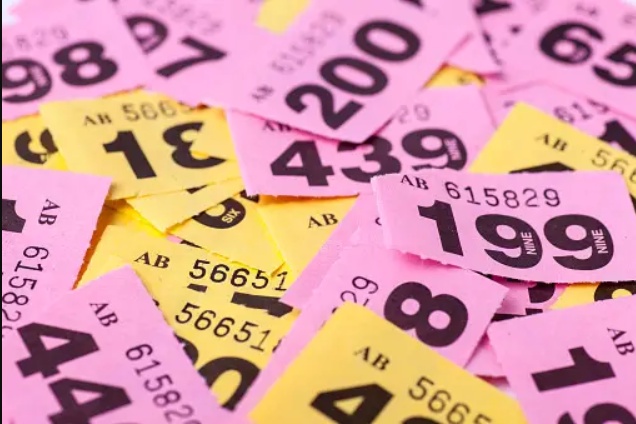In the era of digital convenience, buying and selling event tickets online has become the norm. However, as with any online transaction, concerns about safety and security are paramount. Whether you're a buyer seeking coveted tickets or a seller looking to offload extras, understanding the safest practices for free event ticket selling platform is crucial. In this blog, we'll explore strategies to ensure both buyers and sellers can engage in secure and worry-free online ticket exchanges.
1. Opt for Reputable and Authorized Platforms:
When buying or selling event tickets online, choosing the right platform is the foundational step for a safe transaction. Opt for well-established, reputable platforms that are authorized by event organizers. Platforms like Ticketmaster, Eventbrite, and AXS are known for their stringent security measures and buyer/seller protection policies. These platforms work closely with event organizers to ensure the legitimacy of tickets being sold.
Avoid lesser-known or unverified platforms, as they may lack the security infrastructure necessary to protect both buyers and sellers. Reputable platforms typically have dedicated customer support teams that can assist in case of any issues.
2. Verify the Legitimacy of Sellers:
For buyers, verifying the legitimacy of the seller is crucial to avoid purchasing counterfeit or invalid tickets. Look for sellers with a positive track record and high ratings on the ticketing platform. Read reviews and testimonials from other buyers to gauge the seller's reliability.
Additionally, platforms like Ticketmaster offer features like "Verified Resale," which allows fans to purchase tickets directly from other fans in a secure and verified environment. These tickets are authenticated by the platform, ensuring their legitimacy.
For sellers, the onus is on providing accurate information about the tickets being sold. Clearly communicate details such as seat location, face value, and any additional fees. Transparency builds trust, and buyers are more likely to engage in transactions with sellers who provide comprehensive and honest information.
3. Use Secure Payment Methods:
Both buyers and sellers should prioritize the use of secure payment methods to protect financial information. Reputable ticketing platforms employ encryption technology to secure payment transactions. When making a purchase, ensure that the payment page has a secure connection (look for "https" in the URL) and never enter payment information on unsecured websites.
When selling tickets, platforms often offer secure payment processing services. Avoid direct bank transfers or other unsecured methods, as they may expose sensitive financial information.
4. Be Wary of Overpriced Tickets and Scams:
Buyers should exercise caution when encountering tickets priced significantly above face value. While resale is common, excessively high prices may indicate a scam or fraudulent activity. Use the platform's features to report suspicious listings, and rely on well-established sellers with a history of successful transactions.
Sellers should be wary of potential scams from buyers posing as interested parties. Avoid sharing sensitive information outside of the secure platform messaging system, and be cautious of requests for unconventional payment methods.
5. Familiarize Yourself with Refund and Buyer Protection Policies:
Understanding the refund and buyer protection policies of the ticketing platform is essential for both buyers and sellers. Reputable platforms often have clear policies that protect buyers in case of event cancellation, date changes, or other unforeseen circumstances. Familiarize yourself with these policies to know your rights and options in different scenarios.
Buyers should also be aware of the ticket resale market's inherent risks. Some platforms offer buyer protection programs that guarantee a refund if the tickets are invalid or if the event is canceled. Sellers, on the other hand, should understand the terms of resale and any fees associated with listing tickets.
6. Stay Informed About Event Policies:
Event organizers may have specific policies regarding ticket resale, transfers, or refunds. Familiarize yourself with these policies before engaging in any online ticket transactions. Some events have restrictions on transferring tickets to others, and violating these policies may result in denied entry.
Buyers should check the event's official website or contact the organizer directly to verify the validity of a ticket and to ensure compliance with any transfer or resale guidelines.
7. Consider Ticket Insurance:
Some ticketing platforms offer ticket insurance, providing an added layer of protection for both buyers and sellers. Ticket insurance can cover unforeseen circumstances such as illness, travel disruptions, or other emergencies that may prevent attendance. While this often involves an additional cost, it can offer peace of mind and financial protection in case plans change.
In conclusion, buying and selling online christmas eve 2023 Toronto can be a safe and secure process when approached with caution and adherence to best practices. By opting for reputable platforms, verifying seller legitimacy, using secure payment methods, staying informed about refund policies, being cautious of overpriced tickets, and considering ticket insurance, both buyers and sellers can navigate the online ticketing terrain with confidence. Remember, knowledge is key to a safe transaction, so always stay informed and prioritize security when engaging in online ticket transactions.


No comments yet